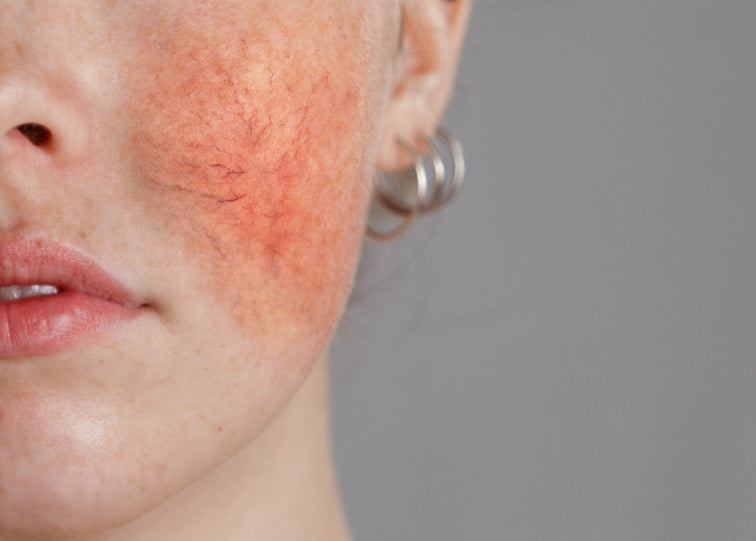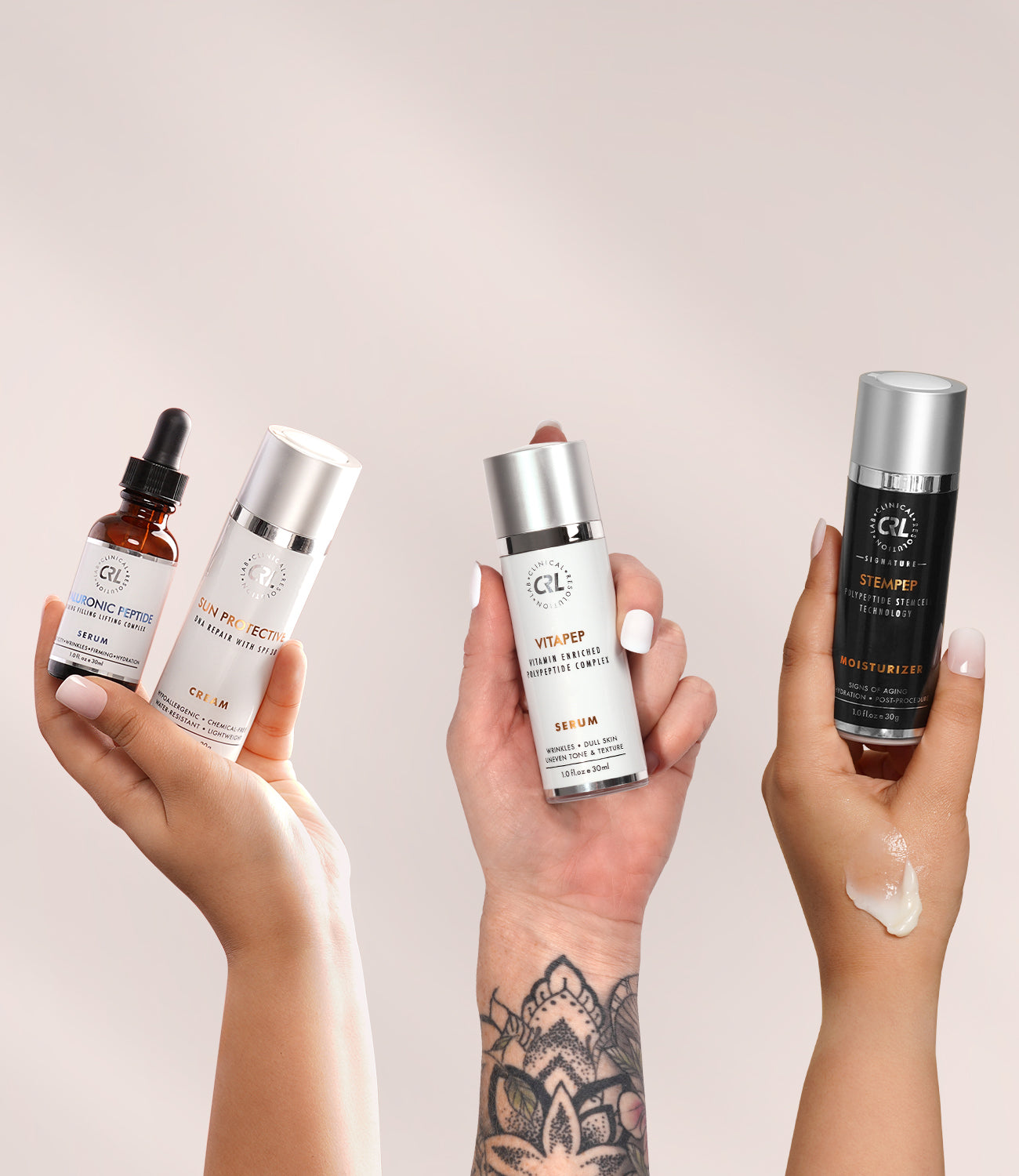
If you live with rosacea, you know how unpredictable your skin can be. While rosacea triggers can vary from person to person, skincare ingredients play a huge role in whether your skin stays balanced or flares up.
1. Harsh Physical Exfoliants
Grainy scrubs with rough particles can cause micro-tears in the skin and aggravate redness. Rosacea-prone skin already has a compromised barrier, so extra friction is the last thing it needs.
Common culprits:
- Walnut shell powder
-
Apricot kernel
- Sugar scrubs
Better alternative: Use gentle chemical exfoliants like lactic acid or mandelic acid at very low concentrations (if tolerated), no more than 1–2 times a week.
2. High-Strength AHAs & BHAs
While gentle exfoliation can help with texture, high concentrations of alpha and beta hydroxy acids can trigger stinging, burning, and redness in rosacea skin.
Common culprits:
-
Glycolic acid (especially above 5%)
-
Salicylic acid (especially above 1–2%)
- Peel solutions
Better alternative: Mild PHA (polyhydroxy acids) or enzyme-based exfoliants that work without deep penetration.
3. Fragrance & Essential Oils
Fragrance, whether synthetic or natural, is one of the most common irritants for sensitive and rosacea-prone skin. Even essential oils labeled as “natural” can irritate.
Common culprits:
- Limonene
- Linalool
- Lavender oil
- Peppermint oil
- Citrus oils
Better alternative: Fragrance-free products labeled for sensitive skin.
4. Alcohol-Based Formulas
Certain types of alcohol can strip the skin’s natural oils, weakening the barrier and triggering inflammation.
Common culprits:
- SD alcohol
- Denatured alcohol
- Isopropyl alcohol
Better alternative: Hydrating formulas with fatty alcohols like cetyl alcohol or stearyl alcohol, which are barrier-friendly.
5. Menthol, Camphor & Eucalyptus
These cooling agents can feel refreshing but often cause a stinging or burning sensation on rosacea skin.
Common culprits:
- Menthol in lip balms or masks
- Camphor in medicated creams
- Eucalyptus oil in cleansers or moisturizers
Better alternative: Products with aloe vera or colloidal oatmeal for soothing relief.
6. High-Potency Retinoids
Retinoids can be transformative for anti-aging, but high concentrations can overwhelm sensitive skin. That doesn’t mean you can’t use them, just start low and slow.
Common culprits:
-
Prescription tretinoin (without dermatologist guidance)
- Retinol serums above 0.3–0.5% without proper introduction
Better alternative: Bakuchiol or encapsulated retinol in very gentle formulations, always paired with a calming moisturizer.
7. Overly Foaming Cleansers
Strong foaming agents can strip moisture and leave skin tight and irritated.
Common culprits:
- Sodium lauryl sulfate (SLS)
- Sodium laureth sulfate (SLES)
Better alternative: Creamy, non-foaming cleansers or gentle micellar waters.
A Rosacea-Friendly Repair Option: Advanced 247 Repair Serum
For rosacea-prone skin, one of the best ways to prevent flare-ups is to focus on barrier repair and hydration rather than aggressive exfoliation or overly potent actives.
Advanced 247 Repair Serum is specifically formulated to support skin recovery with gentle, science-backed ingredients:
- Imperata Cylindrica Root Extract & Glycerin: Hydrates and keeps skin comfortable all day.
- MTS Beta Glucan: Soothes inflammation, strengthens the barrier, and helps reduce redness.
- Palmitoyl Tripeptide-28: Supports collagen production without irritation.
- Growth Factors (EGF, bFGF, IGF-1, PmGF): Encourage skin regeneration, repair damage, and improve resilience.
Because it’s free from fragrance, essential oils, harsh acids, and drying alcohols, this serum works well for calming flare-ups, improving skin texture, and protecting against future irritation.
Tips for Building a Rosacea-Friendly Routine
- Patch test every new product before applying it to your whole face.
- Keep it simple, stick to a cleanser, moisturizer, and SPF, adding other products slowly.
- Moisturize generously to strengthen your skin barrier.
- Always wear sunscreen. UV exposure is one of the biggest rosacea triggers.
Bottom Line
Rosacea skin thrives when treated gently. Avoiding known irritants like harsh exfoliants, high-strength acids, strong fragrances, and drying alcohols can make a noticeable difference in your skin’s comfort and appearance.
A targeted repair product, such as Advanced 247 Repair Serum, can help soothe irritation, strengthen the skin barrier, and reduce redness, making it a great addition to a rosacea-friendly skincare routine.



